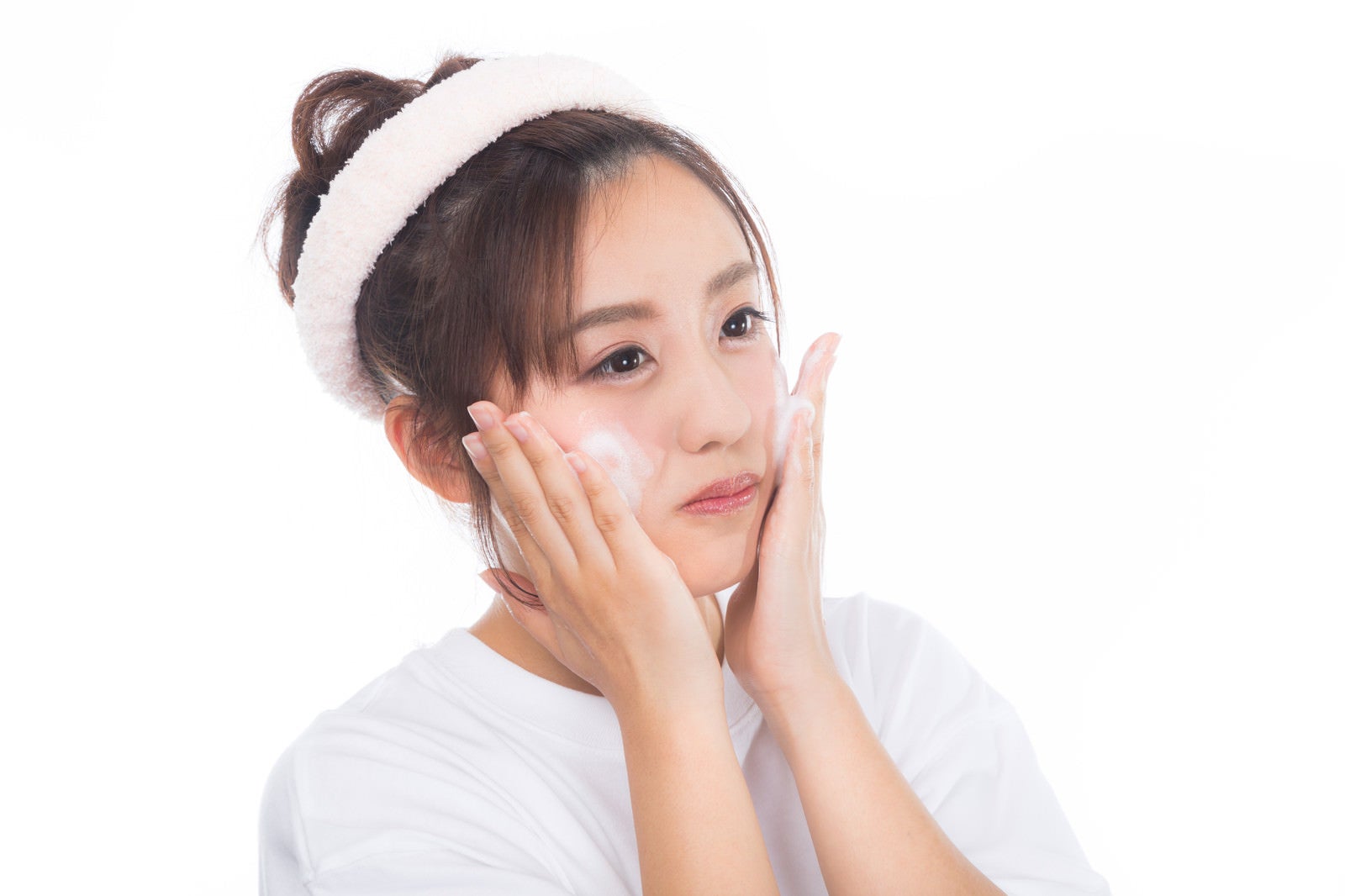Characteristics and causes of sensitive skin
Sensitive skin is a condition in which the skin reacts more easily to external stimuli than normal. This condition is characterized by redness, itching, and dryness. Causes of sensitive skin include the following:
- Decreased barrier function : When the stratum corneum of the skin becomes damaged and moisture evaporates more easily, the skin’s ability to defend itself against external stimuli is reduced.
- Genetic factors : If there is a tendency towards sensitive skin in your family, genetic factors may play a role.
- Environmental factors : UV rays, dry air, pollution, etc. take their toll on the skin.
- Stress and hormonal imbalance : Affects skin metabolism and regeneration.
Understanding these factors can help you choose the right skin care products for your sensitive skin.
How to choose skin care products for sensitive skin
When choosing products suitable for sensitive skin, keep the following in mind:
1.Hypoallergenic
Look for products for sensitive skin that are labeled “hypoallergenic” or “allergy tested,” as these generally contain ingredients that are gentle on the skin.
2. Fragrance-free and color-free
Fragrances and colorants can irritate sensitive skin. It is recommended to choose fragrance-free and color-free products.
3. Rich in moisturizing ingredients
To support the skin’s barrier function, choose products that contain moisturizing ingredients such as ceramides, hyaluronic acid, and glycerin.
4. Dermatologist Recommended Brands
Brands and products recommended by dermatologists are more likely to be safe for people with sensitive skin.
Recommended skin care ingredients for sensitive skin
Here are some ingredients that are safe for people with sensitive skin.
- Ceramide : Strengthens the skin’s barrier function and helps retain moisture.
- Aloe Vera Extract : Has a soothing effect and relieves skin inflammation.
- Chamomile Extract : Anti-inflammatory and moisturizing properties.
- Panthenol (Vitamin B5) : Promotes moisturization and skin repair.
- Niacinamide : Reduces inflammation and evens skin tone.
Products containing these ingredients are suitable for people with sensitive skin.
Skin care routine for sensitive skin
Establishing an effective skin care routine can help improve sensitive skin and keep it healthy.

1. Cleansing
To gently remove makeup and dirt, use a milk or gel cleanser for sensitive skin. It is best to choose a product that does not contain alcohol or surfactants.
2. Wash your face
Use a mildly acidic cleanser and be careful not to strip your skin of its necessary oils. It is also important to rinse with lukewarm water.
3. Moisturizing
Moisturize immediately after washing your face. Use a moisturizer that contains ceramides or hyaluronic acid to help lock in moisture in your skin.
4. Daytime care
Choose a sunscreen for sensitive skin to protect your skin from UV rays. A good rule of thumb is SPF30 or higher, PA+++ or higher.
5. Special care once or twice a week
Keep an eye on your skin and try sheet masks for sensitive skin and soothing serums.
5 skin care products recommended for sensitive skin
Below are some products that are especially recommended for those with sensitive skin.
- La Roche Posay Toleriane Ultra Cream
- Features: Fragrance-free and preservative-free moisturizing cream for sensitive skin.
- Ingredients: Shea Butter, Neurosensin.
- Cetaphil Moisturizing Cream
- Features: A moisturizing cream suitable for sensitive skin that is prone to dryness.
- Ingredients: Glycerin, Allantoin.
- Curel Moisturizing Face Cream
- Features: Contains ceramide to support the skin’s barrier function.
- Ingredients: Allantoin, Eucalyptus Extract.
- Avene Cicalfat Plus Repair Cream
- Features: A repairing cream that soothes redness and dryness of the skin.
- Ingredients: Avene Thermal Spring Water, Skullnoid Ingredients.
- Dr. Jart Cicapair Cream
- Features: Soothes and reduces redness on sensitive skin.
- Ingredients: Centella Asiatica Extract, Madecassoside.
Daily precautions to protect sensitive skin
In order to keep sensitive skin in good condition, you need to be careful in your daily life.
- Keep things that come into contact with your skin clean. Wash your pillowcases and towels frequently to prevent bacteria and dirt from getting on your skin.
- Stress Management: Reduce stress and balance your hormones through moderate exercise and relaxation.
- Improve your diet by eating foods rich in vitamins A, C, and E to support healthy skin.
Evidence and References
- Sensitive skin and barrier function : https://www.ncbi.nlm.nih.gov/pmc/articles/PMC6085722/
- Effects of skin care ingredients : https://pubmed.ncbi.nlm.nih.gov/29431592/
- The relationship between stress and skin : https://www.ncbi.nlm.nih.gov/pmc/articles/PMC4851057/
With proper care, it is possible to maintain healthy and beautiful sensitive skin. Choose the right products for your skin and enjoy skin care.

 JA
JA
 中文
中文
 EN
EN










